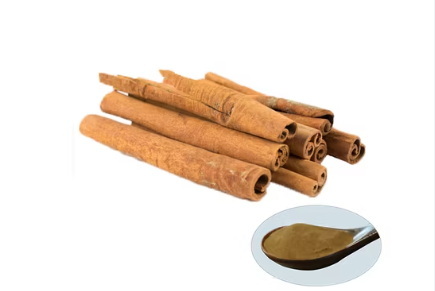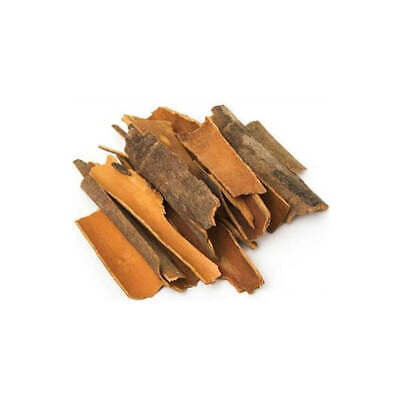Content Menu
● Introduction to Cinnamon Bark
>> Composition of Cinnamon Bark
>> Mechanisms of Anti-Inflammatory Action
● Applications of Cinnamon Bark Liquid Herbal Extract
● Potential Risks and Considerations
● Historical and Cultural Significance of Cinnamon
>> Traditional Uses of Cinnamon
● Emerging Research on Cinnamon
>> Cinnamon and Diabetes Management
>> Cinnamon and Mental Health
>> Future Directions in Cinnamon Research
● Conclusion
● Frequently Asked Questions
>> 1. What are the main bioactive compounds in cinnamon bark liquid herbal extract?
>> 2. How does cinnamon bark liquid herbal extract exert its anti-inflammatory effects?
>> 3. Can cinnamon bark liquid herbal extract be used for digestive health?
>> 4. Does cinnamon bark liquid herbal extract have any cardiovascular benefits?
>> 5. Is cinnamon bark liquid herbal extract useful in cancer prevention?
● Citations:
Cinnamon, derived from the bark of the Cinnamomum tree, has been widely recognized for its culinary and medicinal properties. Among its various forms, cinnamon bark liquid herbal extract is gaining attention for its potential health benefits, particularly its anti-inflammatory effects. This article delves into the anti-inflammatory properties of cinnamon bark liquid herbal extract, exploring its composition, mechanisms of action, and potential applications.

Introduction to Cinnamon Bark
Cinnamon bark is rich in bioactive compounds, including cinnamaldehyde, cinnamic acid, and various phenolic compounds like proanthocyanidins and kaempferol. These compounds contribute to its antioxidant, anti-inflammatory, and anticancer properties.
Composition of Cinnamon Bark
- Cinnamaldehyde: This is the most abundant compound in cinnamon bark, responsible for its distinct flavor and aroma. It has been shown to possess anti-inflammatory properties by inhibiting the production of pro-inflammatory cytokines.
- Cinnamic Acid: Known for its antioxidant properties, cinnamic acid also contributes to the anti-inflammatory effects of cinnamon by reducing oxidative stress.
- Phenolic Compounds: These include proanthocyanidins and kaempferol, which are potent antioxidants that help protect against inflammation by neutralizing free radicals.
Mechanisms of Anti-Inflammatory Action
The anti-inflammatory effects of cinnamon bark liquid herbal extract are primarily attributed to its ability to modulate inflammatory pathways. Here are some key mechanisms:
1. Inhibition of NF-κB Activation: Cinnamaldehyde and other compounds in cinnamon bark can inhibit the activation of NF-κB, a transcription factor involved in the production of pro-inflammatory cytokines.
2. Reduction of Pro-Inflammatory Cytokines: By reducing the production of cytokines like TNF-α and IL-1β, cinnamon extract helps in mitigating inflammation.
3. Antioxidant Activity: The phenolic compounds in cinnamon bark help in neutralizing free radicals, thereby reducing oxidative stress and inflammation.
Applications of Cinnamon Bark Liquid Herbal Extract
Given its anti-inflammatory properties, cinnamon bark liquid herbal extract has potential applications in various health conditions:
- Digestive Health: It may help in reducing inflammation in the gastrointestinal tract, potentially alleviating symptoms of conditions like irritable bowel syndrome (IBS).
- Cardiovascular Health: By reducing inflammation and improving lipid profiles, cinnamon extract may contribute to cardiovascular health.
- Cancer Prevention: Its anti-inflammatory and antioxidant properties suggest potential benefits in cancer prevention by reducing chronic inflammation.
- Neuroprotective Effects: Cinnamon's antioxidant properties may also offer neuroprotection by reducing oxidative stress in the brain, potentially benefiting conditions like Alzheimer's disease.
- Skin Health: Topical application of cinnamon extract may help reduce inflammation and improve skin conditions such as acne.
Potential Risks and Considerations
While cinnamon bark liquid herbal extract is generally considered safe, there are some potential risks and considerations:
- Allergic Reactions: Some individuals may be allergic to cinnamon, so it's important to monitor for any adverse reactions.
- Interaction with Medications: Cinnamon may interact with certain medications, such as blood thinners, so it's crucial to consult with a healthcare provider before use.
- Dosage: The appropriate dosage of cinnamon extract can vary depending on the condition being treated. It's important to follow recommended dosages to avoid adverse effects.

Historical and Cultural Significance of Cinnamon
Cinnamon has been used for centuries in traditional medicine and culinary practices across various cultures. Its value was so high that it was used as a form of currency in some ancient societies. The historical significance of cinnamon is not only economic but also medicinal, as it was used to treat a variety of ailments, including digestive issues and respiratory infections.
Traditional Uses of Cinnamon
- Medicinal Use: In traditional Chinese medicine, cinnamon is used to warm the body and improve circulation. It is also used to treat colds and flu due to its warming properties.
- Culinary Use: Cinnamon is a staple spice in many cuisines, particularly in baking and desserts. Its flavor and aroma enhance dishes while providing potential health benefits.
Emerging Research on Cinnamon
Recent studies are exploring the potential of cinnamon in managing chronic diseases. For instance, its role in improving insulin sensitivity suggests benefits for diabetes management.
Cinnamon and Diabetes Management
Cinnamon has been shown to improve insulin sensitivity and reduce blood sugar levels in some studies. This makes it a promising natural adjunct for managing type 2 diabetes.
Cinnamon and Mental Health
There is emerging interest in the potential neuroprotective effects of cinnamon, which may offer benefits for mental health conditions such as anxiety and depression.
Future Directions in Cinnamon Research
As research continues to uncover the therapeutic potential of cinnamon, future studies should focus on:
- Clinical Trials: Conducting large-scale clinical trials to confirm the efficacy and safety of cinnamon extracts in various health conditions.
- Mechanistic Studies: Investigating the molecular mechanisms underlying cinnamon's health benefits to better understand its therapeutic potential.
- Standardization of Extracts: Developing standardized extracts to ensure consistency in bioactive compound content and efficacy across different products.
Conclusion
Cinnamon bark liquid herbal extract offers promising anti-inflammatory properties, primarily due to its rich composition of bioactive compounds like cinnamaldehyde and phenolic acids. These compounds work synergistically to modulate inflammatory pathways and provide antioxidant protection. As research continues to uncover the therapeutic potential of cinnamon extracts, their integration into dietary supplements and functional foods may offer new avenues for managing inflammation-related conditions.

Frequently Asked Questions
1. What are the main bioactive compounds in cinnamon bark liquid herbal extract?
The main bioactive compounds include cinnamaldehyde, cinnamic acid, and various phenolic compounds such as proanthocyanidins and kaempferol.
2. How does cinnamon bark liquid herbal extract exert its anti-inflammatory effects?
It exerts anti-inflammatory effects by inhibiting NF-κB activation, reducing pro-inflammatory cytokines, and providing antioxidant protection.
3. Can cinnamon bark liquid herbal extract be used for digestive health?
Yes, it may help reduce inflammation in the gastrointestinal tract, potentially alleviating symptoms of conditions like IBS.
4. Does cinnamon bark liquid herbal extract have any cardiovascular benefits?
Yes, it may contribute to cardiovascular health by reducing inflammation and improving lipid profiles.
5. Is cinnamon bark liquid herbal extract useful in cancer prevention?
Its anti-inflammatory and antioxidant properties suggest potential benefits in cancer prevention by reducing chronic inflammation.
Citations:
[1] https://pmc.ncbi.nlm.nih.gov/articles/PMC9914695/
[2] https://huggingface.co/openbmb/VisCPM-Chat/raw/main/vocab.txt
[3] https://onlinelibrary.wiley.com/doi/10.1155/2017/7347219
[4] https://pmc.ncbi.nlm.nih.gov/articles/PMC4003790/
[5] https://onlinelibrary.wiley.com/doi/10.1155/2023/5467342
[6] https://www.mdpi.com/1999-4907/12/5/648






























